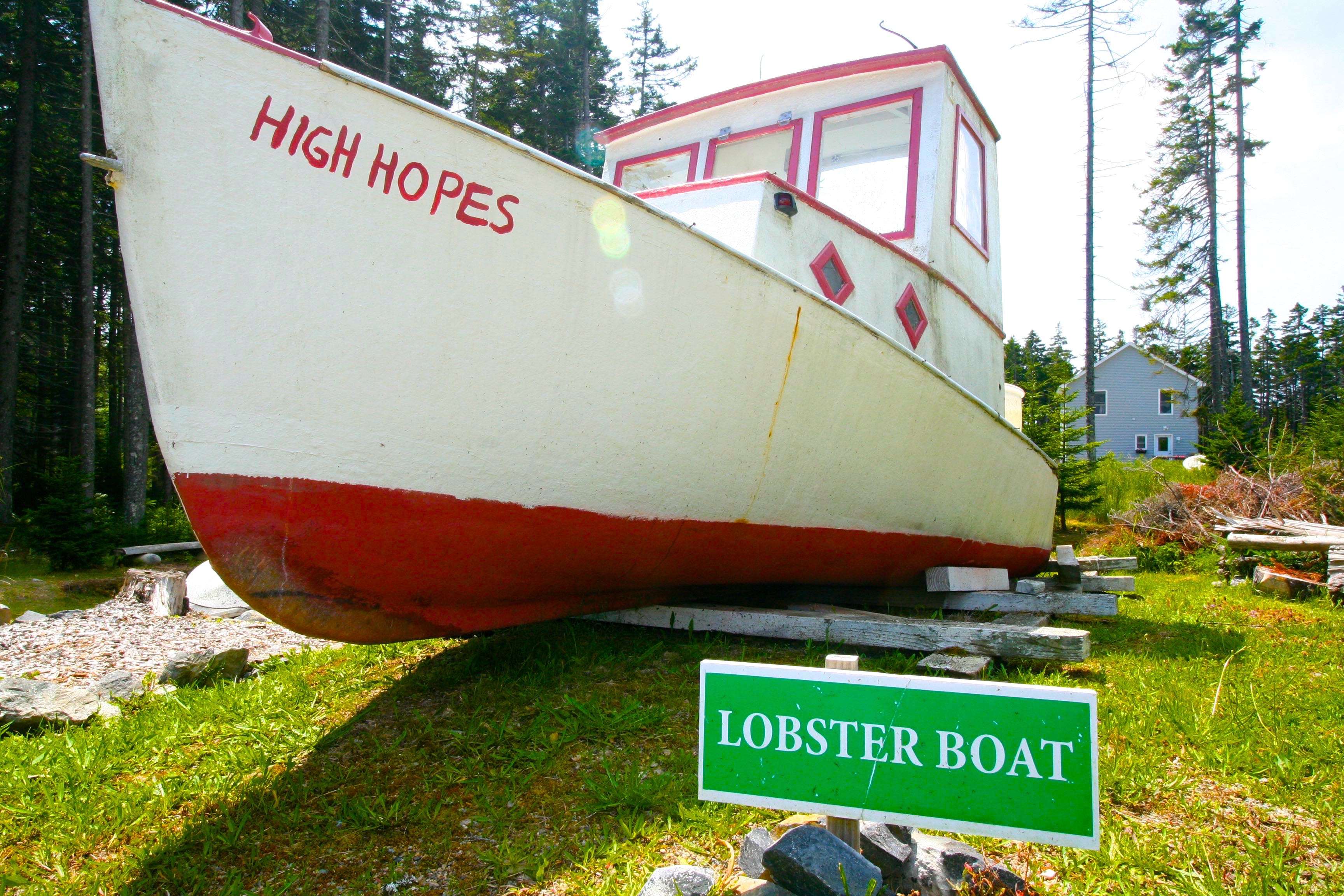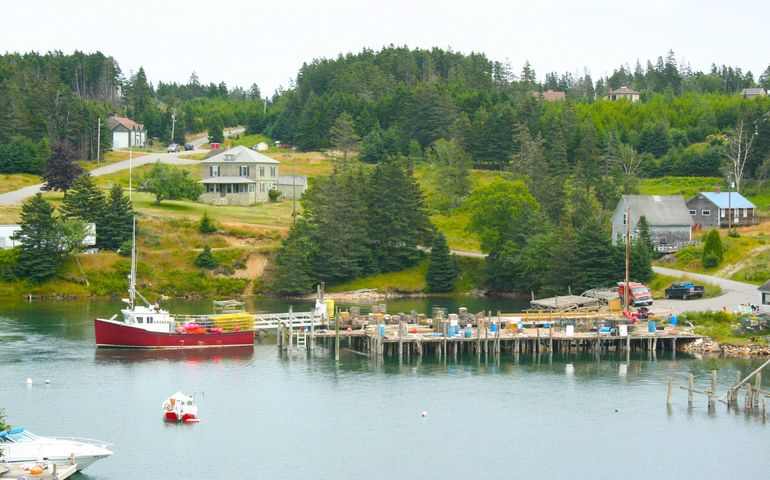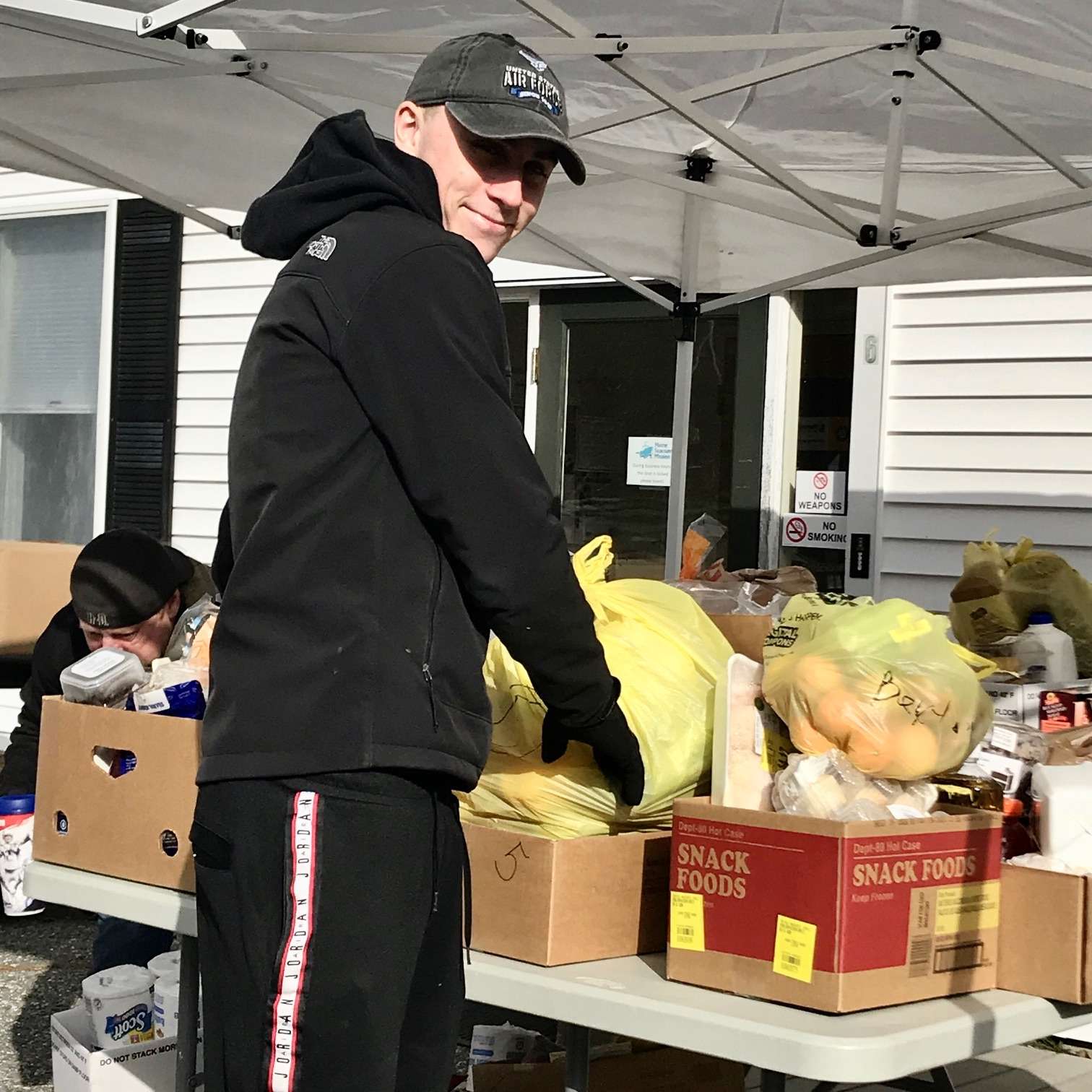
Maine's 'unbridged' islands hunker down
 File photo / Laurie Schreiber
Some of Maine’s unbridged islands have issued travel restrictions and advisories. Isolation on islands like Frenchboro, seen here, is nothing unusual.
File photo / Laurie Schreiber
Some of Maine’s unbridged islands have issued travel restrictions and advisories. Isolation on islands like Frenchboro, seen here, is nothing unusual.
Islands in Maine without bridges to the mainland are taking special steps to protect residents from the threat of coronavirus.
The town of Cranberry Isles is the latest to restrict movements. The cluster of islands off Mount Desert Island includes two with year-round populations, Great Cranberry and Little Cranberry.
The Cranberry Isles Board of Selectmen declared a public health emergency effective March 17 to April 1. It requires contractors commuting daily to Cranberry Isles for work to limit visits to their job sites, and to maintain social distance from and limit interactions with residents.
Year-round residents returning from trips and returning summer residents are required to self-quarantine for two weeks. Unnecessary off-island travel is strongly discouraged for island residents.
Banned travel
On March 15, the North Haven select board issued an order banning all travel except for “essential purposes.”
The ban includes people who don’t reside on the island full-time and contractors who work on the island but don’t live there. Essential travel includes medical care and direct caregiving; resupply of bulk food items, fuel and other products required for human consumption, habitation and well-being; law enforcement, first responder and emergency care; and delivery of building supplies and materials needed for island residents to perform their jobs.
The town of North Haven is working with North Haven Grocery and Penobscot Island Air, a Maine island air charter service based at Knox County Regional Airport, to arrange for shipment and pick-up or delivery of groceries and other essential items at the grocery or via Penobscot Island Air or the Maine State Ferry Service.
North Haven, in Penobscot Bay, lies 12 miles from the mainland. The only ways to reach it are by small aircraft, boat or the Maine State Ferry Service. The town operates a small medical clinic staffed by a nurse practitioner. The town has only one grocery store, one gas pump, one heating oil-and-kerosene supply truck and one propane delivery truck.
Penobscot Island Air is the only air carrier serving the island, and it’s the primary means of emergency medical transport.
“The select board strongly encourages people to order their groceries, foodstuffs and other necessaries through the North Haven Grocery or from a service that will deliver the items via the Maine State Ferry Service or Penobscot Island Air,” the order says. “The town will also coordinate efforts to screen and obtain volunteers to help with the delivery of groceries and other essential items to persons who are quarantined or who are otherwise unable to obtain these items themselves.”
The town is also working with suppliers of building and other materials to find ways to obtain the materials in a way that minimizes the likelihood of transmission of COVID-19.
Early returns
In a March 15 memo issued to residents, the neighboring island of Vinalhaven noted that some seasonal residents, as well as some new faces, are heading to the island seeking social isolation or a safe place.
“While we may often make light of being isolated, please consider the increased risk that traveling long distances may have on our isolated island community,” the memo says.

On March 17, the town of Swan's Island posted a similar memo to seasonal residents who might be considering returning: “[P]lease consider that Swan's Island is not equipped to handle actual coronavirus cases. Our preference would be that you remain in places where you have direct access to a hospital. If you do come to the island, please do your best to prepare for an extended stay and the town would ask that you be prepared to self-quarantine for a two-week period.”
Isolation is normal
“Our island seems to be doing okay at the moment,” Sarah Brake, a selectman on Frenchboro, told Mainebiz.
“Most of us shop for two to three weeks at a time. As an island, we are better prepared for isolation as this is our ‘normal.’ We have canceled our potluck and postponing until we feel it is safer for all. We do not have too many residents to begin with this winter. At the moment it does not feel like we are having outside pressure. We do not get visitors this time of year because there is nowhere on the island for them to stay, and camping is prohibited.”
Brian Krafjack, co-owner of the Island Market & Supply on Swan’s Island, told Mainebiz that, as a rule, the islanders are well prepared as far as stocking up because they’re used to not being able to get off the island whenever they want.
Krafjack also provides mail and freight delivery by boat to Frenchboro, propane delivery on Swan’s and freight ordering service for both islands; and his store acts as a mail and freight depot. He is also a firefighter and ambulance driver.
An influx of summer residents is beginning sooner than it normally would, he said. But islanders have a culture of looking out for each other.
“We noticed this trend, many years ago, that we will always have one of everything because no one will buy the last one,” he said. “Everybody thinks somebody else might need it more than they do. I predict that, if our vendors can’t keep up with demand, we’ll end up with one of everything left on our shelves.”
Vendors have been helpful in identifying alternative products if specific orders aren’t available, he said.
“We’re still fairly well stocked,” he added. “Our plan right now is business as usual. We have hand sanitizers, we’re wiping down touched surfaces regularly, we’re following guidelines. We’re trying to limit people’s stays in the store.”
The store is traditionally a social hub.
“I think people more and more understand that maybe they can’t hang out like they used to until this passes,” he said. “We’re seeing a little bit of an uptick in online orders.”
Krafjack’s 1,000-pound propane filling station was recently replenished; it usually lasts a month or more. Many customers have multiple tanks, which adds to the reserve.
He delivers groceries daily to Frenchboro, where a group of people always await him at the dock: “Today when I went, they were all 6 feet apart from each other.”
Taking cues from the islands
As of March 16, Maine Seacoast Mission in Bar Harbor suspended non-essential visits to the islands, the nonprofit’s president, John Zavodny, told Mainebiz.
“We’re taking our cues from our island communities,” Zavodny said. “North Haven has taken the step of prohibiting non-island residents. Whether you agree with that decision or not, we think the spirit is a good one, of trying to self-isolate, trying to flatten the curve.”
The mission’s regularly scheduled island visits are suspended through March 31. However, the suspension doesn’t mean the mission is unavailable to island residents, he emphasized. His team is discussing ways to best support island residents during the pandemic and would like to hear their ideas.
The mission, founded in 1905 to serve island and coastal communities, runs a 74-foot ship, the Sunbeam, that brings a registered nurse and telemedicine facilities to islands. The nurse makes house calls on islanders unable to come to the boat. For others, the Sunbeam also serves as a floating community center.
“We’re talking about how do we help island residents get some of their chores done, get some services for things that they normally do themselves,” he said.
For example, if someone needs a prescription picked up, the mission can go to the pharmacy and deliver the prescription to the mailoat or to the airplane that serves Matinicus, he said.
“We’re all figuring out creative ways to help,” he said of his staff. “The mission has always been there for these communities. We’ll continue to be there. This will be a historic opportunity for us to serve.”
The mission remains open to the possibility of visiting individuals on the islands that are limited in scope and follow all precautions, he added.
“We have the major advantage of having a nurse on our crew,” he said. “She’s very careful and deliberate and she’s been very helpful.”
The mission’s island services coordinator is also a chaplain and counselor.
“He’s talking about having a virtual coffee with island communities, inviting them through zoom capability to join each other with coffee and a chat,” Zavodny said. “One powerful positive is that, through those virtual chats, residents from different islands will be able to interact with each other, which isn’t that often. The islands tend to stick to themselves in large measure.”
Food security
The mission’s campus in Cherryfield continues to serve downeast communities on the mainland. The campus has a community center, education building and food pantry.

“What we’re witnessing early on is, there’s a very high need to maintain our food systems and to address food security,” Zavodny said. “We’re continuing our work and we’re doing it in creative ways.”
For example, the food system work serves over 600 people per month and provides community meals. The community meals have been suspended. Instead, the mission implemented a "drive-through" concept, allowing participants to call in orders ahead of time. Volunteers prepare food orders and participants pick them up.
“We’re relying on our volunteer network to not only deliver food in safe ways but also to stay in touch with our downeast communities, check in on our seniors, make sure people have what they need, but coordinate all the normal community services in creative virtual ways,” said Zavodny.
The mission is looking into virtual ways to serve children and their families who normally take part in its after-school programs, he said.
The mission has set up a blog on its website to provide updates and is pushing items out through social media.
Ferry restrictions
Effective March 16, Beal & Bunker Ferry suspended all non-residential travel to and from the Islands until March 31.
The ferry is the only one offering year-round transportation to and from Northeast Harbor to the Cranberry Isles. Year-round and summer residents will still be allowed to ride the boat.
“We are discussing further ways to support our community during this pandemic,” the service said in a Facebook post.
On March 18, the Maine State Ferry Service issued a notice that is will stop physically collecting tickets and will visually inspect them instead. It encouraged people to stay in their vehicles while riding the ferries. The service’s schedule remains unchanged at this time.
The service has ferries from Rockland, Bass Harbor ran Lincolnville that serve Vinalhaven, North Haven, Matinicus, Swan’s Island, Frenchboro and Islesboro.
Earlier in the week, it issued a continuity of operations plan that includes supply of sanitizer and disinfectant to employees, passengers, terminals and vessels; cancels leaves; and plans for potential reduction in service or combination of service if crew members become sick.










0 Comments